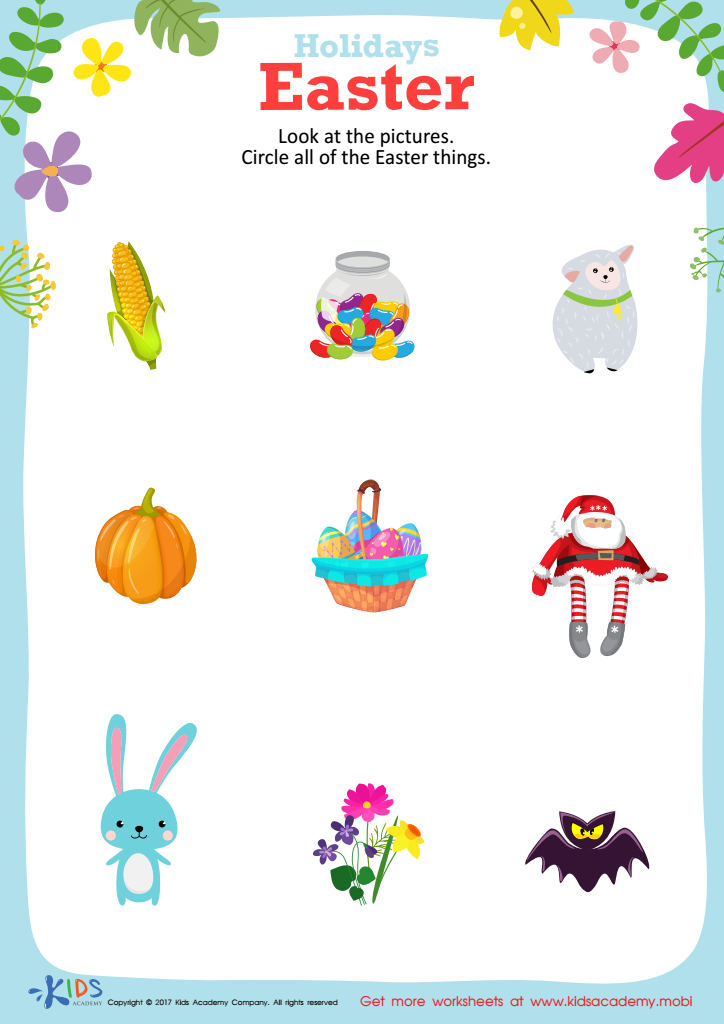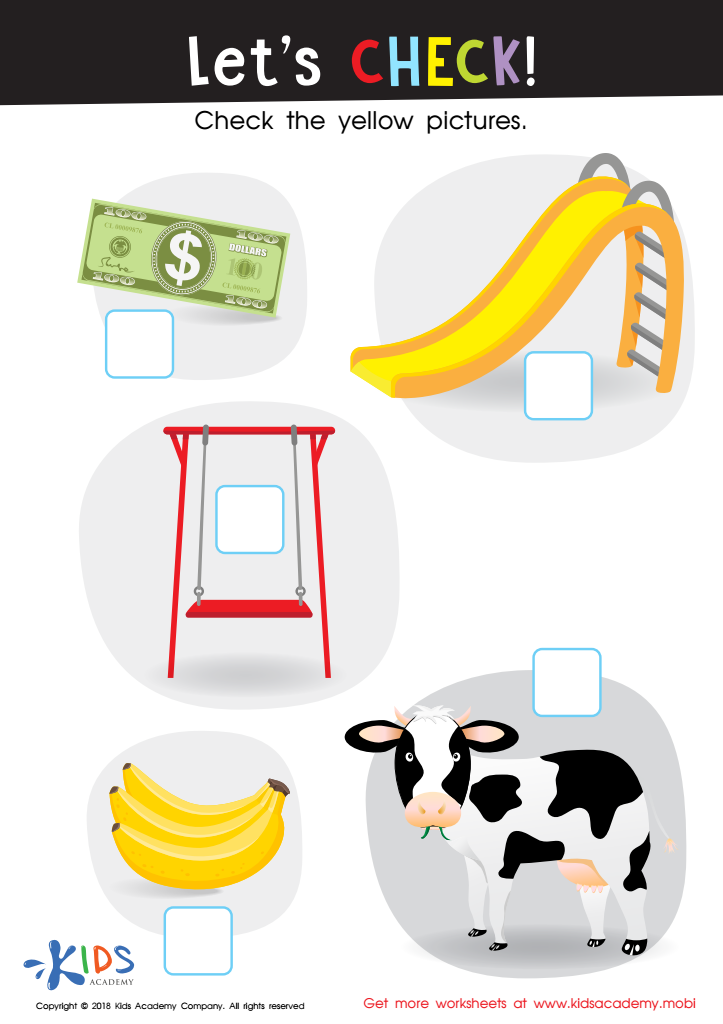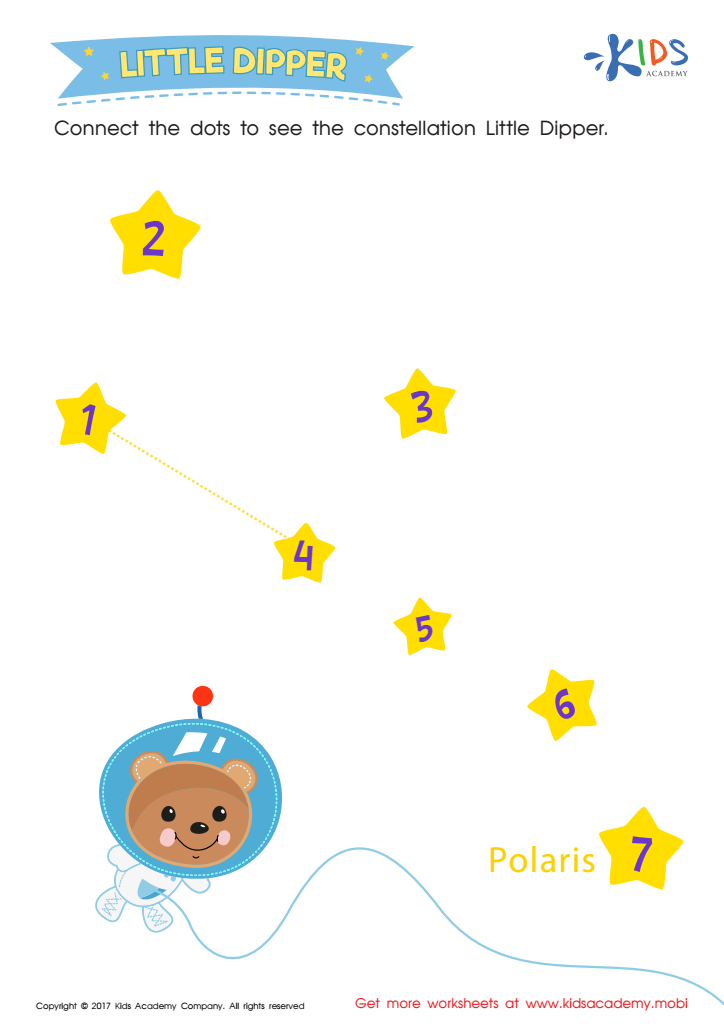Counting practice World Around Us Worksheets for Ages 3-5
3 filtered results
-
From - To
Introduce your young learners to the joy of numbers with our "Counting Practice: World Around Us Worksheets for Ages 3-5". These engaging, beautifully illustrated worksheets cultivate foundational math skills through the exploration of everyday objects and environments. Designed specifically for preschoolers, each activity promotes counting, number recognition, and critical thinking. From counting animals in the zoo to fruits in a basket, our worksheets make learning fun and relevant to their world. Ideal for both classroom and home use, these printable resources support early numeracy, setting the stage for future academic success in a playful, interactive way.


Easter Holiday Printable


Let's Check! Worksheet
Parents and teachers should prioritize counting practice in the early years—ages 3-5—because it forms the foundation for future mathematical understanding and everyday competence. At this critical developmental stage, young children are exceptionally receptive to learning through play and exploration. Integrating counting practices into their natural environment can make the learning process both engaging and intuitive.
Firstly, counting enhances cognitive development. It supports the brain's ability to recognize patterns, which is pivotal for problem-solving skills. Structured activities that involve counting objects, steps, or everyday items teach children how to organize and categorize, fostering analytical thinking.
Secondly, counting practice nurtures language development. As children articulate numbers and quantities, they expand their vocabulary and comprehension, which are essential for effective communication.
Moreover, early counting practice contributes to a child's sense of confidence and accomplishment. Mastering these skills individually or in a group setting encourages a positive attitude toward learning—a trait that will benefit them in all educational endeavors.
Finally, incorporating counting into real-world contexts helps children see the relevance of math in everyday life. They begin to understand its application, whether in measuring ingredients for a recipe or distributing snack portions, thus embedding these essential skills more deeply. All these benefits underscore the critical importance of counting practice in the foundational years.
 Assign to My Students
Assign to My Students








.jpg)













